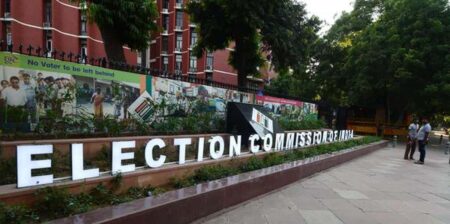The Supreme Court has recently upheld the much-debated Bihar caste census survey, while hearing a petition filed against the status quo order issued by the Patna High Court. This development has sparked significant discussions regarding the implications of caste-based data collection and its impact on policy formulation and social dynamics in the region.

Supreme Court Upholds Patna High Court’s Status Quo Order On Bihar Caste Census Survey
Patna High Court’s Verdict
The Patna High Court called the census exercise to be “perfectly valid and initiated with due competence”. The order came in response to a public interest litigation (PIL) that raised concerns about the potential consequences of such data collection. The judgment given by the division bench, the Court concluded that the purpose of conducting the survey is to identify the backward classes, scheduled caste and scheduled tribes, in order to uplift them and ensure equal opportunities for the same.
Caste Census and Policy Implications
The proposed caste census in Bihar has been a topic of heated debate since its announcement. Proponents argue that accurate caste-based data could facilitate the targeted allocation of resources and aid in addressing historic disparities. Critics, on the other hand, express concerns about the perpetuation of caste divisions and the potential misuse of sensitive data. The Supreme Court’s decision of upholding the Patna High Court’s order to allow the survey raises concerns on the possible implications of the same, considering the history of caste based division and discrimination the country.
Legal and Societal Ramifications
The legal and societal ramifications of caste-based data collection are multi-faceted. While proponents cite the need for evidence-based policy decisions to uplift marginalized communities, opponents fear that emphasizing caste could further entrench divisions and hinder social progress. This standoff underscores the delicate balance between equitable representation and the risk of reinforcing discriminatory practices. Furthermore, the cause of great concern the violation of the right of privacy, right to dignity, right to identity, right to informational privacy and rights of choice of citizens under article 22 of the Indian Constitution, as argued in a petition filed by Youth for Equality organization.
Balancing Data Collection and Privacy Rights
The debate also brings to the forefront the challenge of balancing data collection with individuals’ right to privacy. The caste census survey raises questions about the protection of sensitive personal information, data security, and the potential for profiling. The courts’ involvement in this matter demonstrates the importance of ensuring that any data collection efforts adhere to legal safeguards and uphold citizens’ fundamental rights.
Implications for Other Regions
The Bihar caste census survey developments have broader implications beyond the state’s borders. Many regions across the country grapple with similar questions of data collection, representation, and equitable resource distribution. The outcome of this case could encourage other states to do a similar exercise as well.
Conclusion: A Delicate Balancing Act
The nation watches closely because of the Supreme Court’s decision in upholding the Bihar caste census survey following the Patna High Court’s status quo order.
The ongoing debate between the benefits of accurate data collection and the potential for perpetuating caste divisions underscores the complexities of addressing historical inequalities while safeguarding privacy and fundamental rights.
As India navigates this delicate balancing act, the outcomes will likely have repercussions extending well beyond this case.












